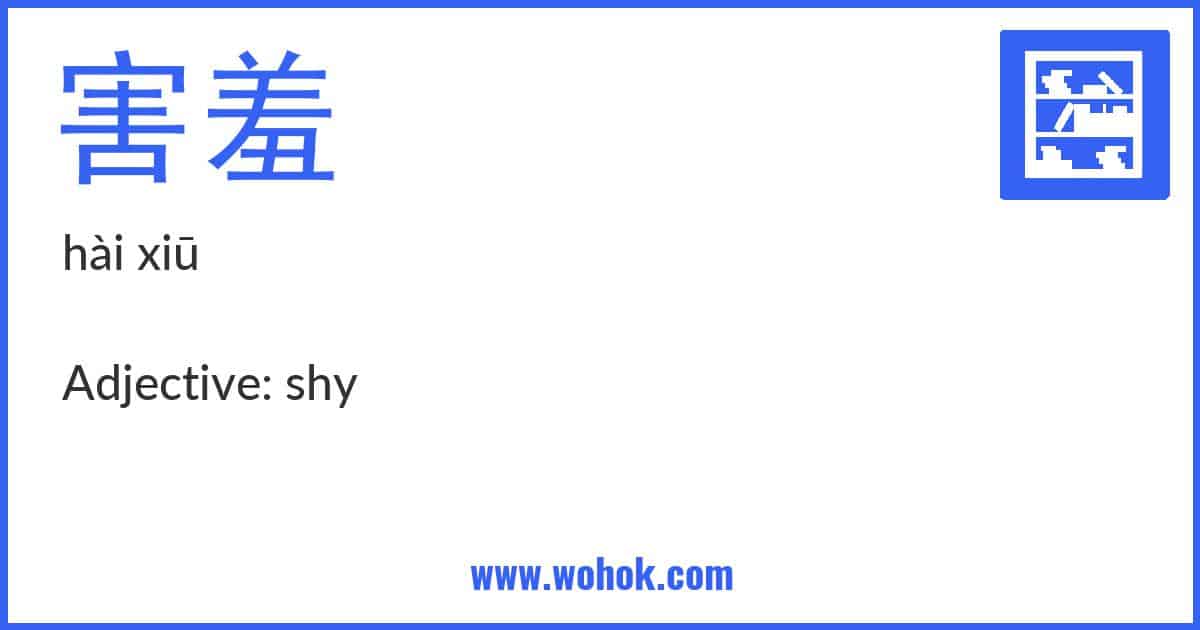The Chinese word 害羞 means “shy” or “bashful”. It is commonly used to describe a person who is hesitant or uncomfortable in social situations, or who is easily embarrassed. The term can also be used to describe a feeling or emotion, such as feeling shy or embarrassed in a particular situation. In Chinese culture, being modest and humble is often valued, so being “害羞” is not necessarily seen as a negative trait.
Translation
Adjective: shy
Pronunciation
Example Sentences
| Chinese | Pinyin | Engish |
|---|---|---|
| 我见到他就会害羞 | wǒ jiàn dào tā jiù huì hài xiū | I get shy when I see him |
| 她的害羞让她不敢说话 | tā de hài xiū ràng tā bù gǎn shuō huà | Her shyness makes her too scared to speak |
| 他的害羞让他不敢与人交流 | tā de hài xiū ràng tā bù gǎn yǔ rén jiāo liú | His shyness makes him too scared to socialize with people |
| 她的害羞让她不敢面对自己的问题 | tā de hài xiū ràng tā bù gǎn miàn duì zì jǐ de wèn tí | Her shyness makes her too scared to face her own problems |
| 我的害羞让我不敢表达自己的想法 | wǒ de hài xiū ràng wǒ bù gǎn biǎo dá zì jǐ de xiǎng fǎ | My shyness makes me too scared to express my own ideas |
| 她的害羞让她错过了很多机会 | tā de hài xiū ràng tā cuò guò le hěn duō jī huì | Her shyness made her miss out on many opportunities |
| 我的害羞让我感到很不自在 | wǒ de hài xiū ràng wǒ gǎn dào hěn bù zì zài | My shyness makes me feel very uncomfortable |
HSK
害羞 is part of HSK Level 4 in HSK 2.0. In the newer HSK 3.0 it is part of HSK Level 7-9.
Learning Card


